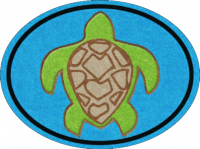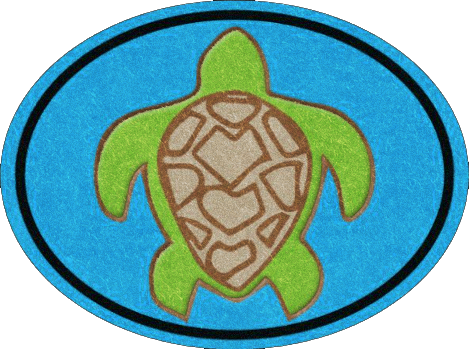Difference between revisions of "AY Honors/Sea Turtles/Answer Key"
(Updated in 2023) |
(Marked this version for translation) |
||
| Line 12: | Line 12: | ||
{{ansreq|page={{#titleparts:{{PAGENAME}}|2|1}}|num=1a}} | {{ansreq|page={{#titleparts:{{PAGENAME}}|2|1}}|num=1a}} | ||
| − | <noinclude><translate></noinclude> | + | <noinclude><translate><!--T:35--> |
| + | </noinclude> | ||
<!-- a. Scutes --> | <!-- a. Scutes --> | ||
The scales that make up the upper surface of the carapace. | The scales that make up the upper surface of the carapace. | ||
| + | <!--T:36--> | ||
<noinclude></translate></noinclude> | <noinclude></translate></noinclude> | ||
{{CloseReq}} <!-- 1a --> | {{CloseReq}} <!-- 1a --> | ||
{{ansreq|page={{#titleparts:{{PAGENAME}}|2|1}}|num=1b}} | {{ansreq|page={{#titleparts:{{PAGENAME}}|2|1}}|num=1b}} | ||
| − | <noinclude><translate></noinclude> | + | <noinclude><translate><!--T:37--> |
| + | </noinclude> | ||
<!-- b. Carapace --> | <!-- b. Carapace --> | ||
The upper bony structures of the turtle shell covering the back. | The upper bony structures of the turtle shell covering the back. | ||
| + | <!--T:38--> | ||
<noinclude></translate></noinclude> | <noinclude></translate></noinclude> | ||
{{CloseReq}} <!-- 1b --> | {{CloseReq}} <!-- 1b --> | ||
{{ansreq|page={{#titleparts:{{PAGENAME}}|2|1}}|num=1c}} | {{ansreq|page={{#titleparts:{{PAGENAME}}|2|1}}|num=1c}} | ||
| − | <noinclude><translate></noinclude> | + | <noinclude><translate><!--T:39--> |
| + | </noinclude> | ||
<!-- c. Plastron --> | <!-- c. Plastron --> | ||
The bones that make up the underside of the shell. | The bones that make up the underside of the shell. | ||
| + | <!--T:40--> | ||
<noinclude></translate></noinclude> | <noinclude></translate></noinclude> | ||
{{CloseReq}} <!-- 1c --> | {{CloseReq}} <!-- 1c --> | ||
{{ansreq|page={{#titleparts:{{PAGENAME}}|2|1}}|num=1d}} | {{ansreq|page={{#titleparts:{{PAGENAME}}|2|1}}|num=1d}} | ||
| − | <noinclude><translate></noinclude> | + | <noinclude><translate><!--T:41--> |
| + | </noinclude> | ||
<!-- d. Claw --> | <!-- d. Claw --> | ||
The two hooked appendages that are present on the front flippers. | The two hooked appendages that are present on the front flippers. | ||
| + | <!--T:42--> | ||
<noinclude></translate></noinclude> | <noinclude></translate></noinclude> | ||
{{CloseReq}} <!-- 1d --> | {{CloseReq}} <!-- 1d --> | ||
{{ansreq|page={{#titleparts:{{PAGENAME}}|2|1}}|num=1e}} | {{ansreq|page={{#titleparts:{{PAGENAME}}|2|1}}|num=1e}} | ||
| − | <noinclude><translate></noinclude> | + | <noinclude><translate><!--T:43--> |
| + | </noinclude> | ||
<!-- e. Papillae --> | <!-- e. Papillae --> | ||
The backwards facing spines in the turtles oesophagus that allow it to retain food whilst letting water out of its stomach. | The backwards facing spines in the turtles oesophagus that allow it to retain food whilst letting water out of its stomach. | ||
| + | <!--T:44--> | ||
<noinclude></translate></noinclude> | <noinclude></translate></noinclude> | ||
{{CloseReq}} <!-- 1e --> | {{CloseReq}} <!-- 1e --> | ||
{{ansreq|page={{#titleparts:{{PAGENAME}}|2|1}}|num=1f}} | {{ansreq|page={{#titleparts:{{PAGENAME}}|2|1}}|num=1f}} | ||
| − | <noinclude><translate></noinclude> | + | <noinclude><translate><!--T:45--> |
| + | </noinclude> | ||
<!-- f. Salt Gland --> | <!-- f. Salt Gland --> | ||
The backwards facing spines in the turtles oesophagus that allow it to retain food whilst letting water out of its stomach. | The backwards facing spines in the turtles oesophagus that allow it to retain food whilst letting water out of its stomach. | ||
| + | <!--T:46--> | ||
<noinclude></translate></noinclude> | <noinclude></translate></noinclude> | ||
{{CloseReq}} <!-- 1f --> | {{CloseReq}} <!-- 1f --> | ||
{{ansreq|page={{#titleparts:{{PAGENAME}}|2|1}}|num=1g}} | {{ansreq|page={{#titleparts:{{PAGENAME}}|2|1}}|num=1g}} | ||
| − | <noinclude><translate></noinclude> | + | <noinclude><translate><!--T:47--> |
| + | </noinclude> | ||
<!-- g. Clutch --> | <!-- g. Clutch --> | ||
A group of eggs in a single nest. | A group of eggs in a single nest. | ||
| + | <!--T:48--> | ||
<noinclude></translate></noinclude> | <noinclude></translate></noinclude> | ||
{{CloseReq}} <!-- 1g --> | {{CloseReq}} <!-- 1g --> | ||
| Line 161: | Line 175: | ||
* [https://www.dcceew.gov.au/environment/marine/marine-species/marine-turtles Marine Turtles in Australia] | * [https://www.dcceew.gov.au/environment/marine/marine-species/marine-turtles Marine Turtles in Australia] | ||
| + | <!--T:49--> | ||
<noinclude></translate></noinclude> | <noinclude></translate></noinclude> | ||
Latest revision as of 01:24, 7 September 2025
1
1a
The scales that make up the upper surface of the carapace.
1b
The upper bony structures of the turtle shell covering the back.
1c
The bones that make up the underside of the shell.
1d
The two hooked appendages that are present on the front flippers.
1e
The backwards facing spines in the turtles oesophagus that allow it to retain food whilst letting water out of its stomach.
1f
The backwards facing spines in the turtles oesophagus that allow it to retain food whilst letting water out of its stomach.
1g
A group of eggs in a single nest.
2
3
- What is the scientific name?
- Where does it live?
- What are its identifying features?
- How many eggs does it lay in an average clutch?
- What age does it reach maturity/start to lay eggs?
- How long do its eggs incubate?
- On average how many clutches will it lay in a season?
- How long can it hold its breath when active?
4
Light and movement.
5
When they are laid below the high tide line, when the nest is too shallow, when temperatures are predicted to be high, or if the nest becomes exposed with dune erosion.
6
Female.
7
Male turtles have long tails, female turtles have short tails. Male turtles will only leave the ocean to bask, female turtles lay eggs.
8
Artificial light, marine debris/plastic/rubbish, beach modifications such as seawalls, tyre tracks, beach furniture and fishing nets.
9
God created all the sea animals on the fifth day. Genesis 1:20-23
10
References



